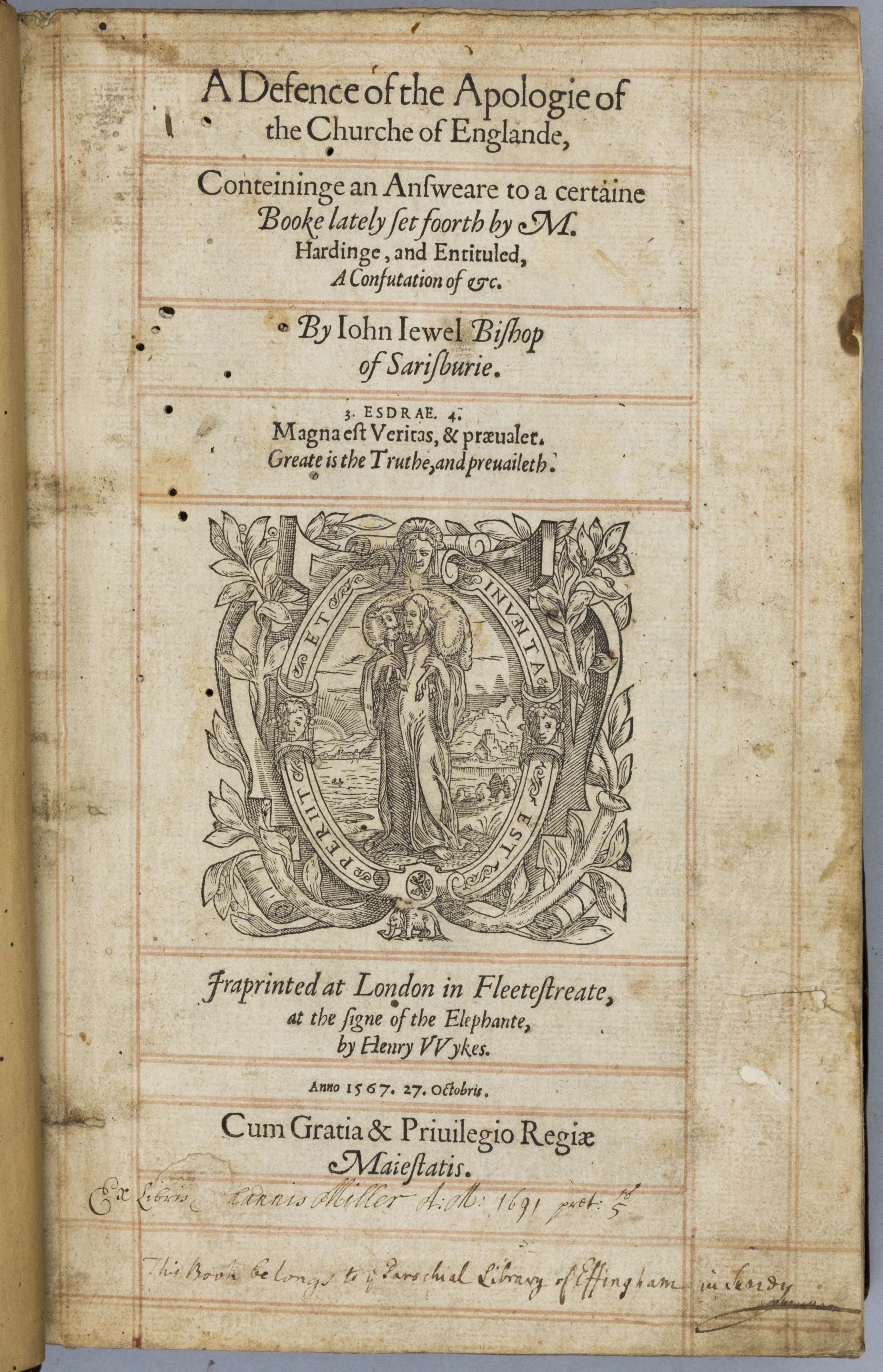
London: H. Wykes, 1567
G8 [Jewel] fol. SR
Statement, rebuttal, and counter-rebuttal were a feature of Reformation publishing, and the ‘Great Controversy’ around the work of John Jewel (1522-1571), Bishop of Salisbury, was a prime example. It stems from a bull by Pope Pius IV of 1560 which excommunicated Elizabeth I. Working as the quasi-official spokesman of the new Church of England, Jewel wrote his Apologie of the Churche of England (1562), refuting charges made against the Church, in Latin for continental consumption. An English translation soon appeared. Of the more than forty refutations to its arguments which appeared between 1564 and 1568, the most substantial was the 744-page A Confutation of a Booke Intituled ‘An Apologie of the Church of England' (1565) by Thomas Harding, an English Catholic priest in Louvain. Jewel’s Defence answers that, incorporating Harding’s text within his own. Each writer closely attacks the other’s arguments and citations, sometimes resorting to typically robust language: e.g. ‘In the ende, M. Hardinge, ye blowe up merily your owne Conquest … with so simple proufes, and so many Untruthes, as … maie not wel be shewed in your Triumphe’ (p. 325). The very type shows the Protestant bias: Jewel’s words appear in large, authoritative black letter, Harding’s in smaller italic.